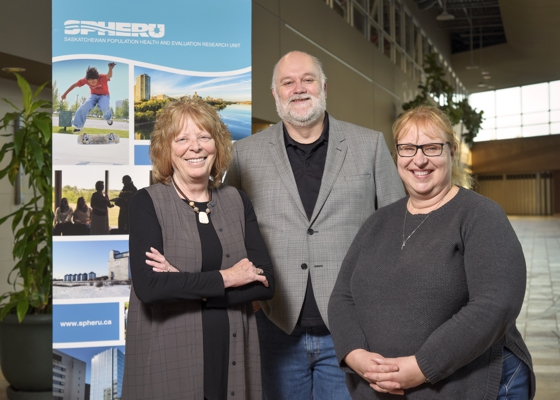
A team of University of Regina (U of R) professors have received a $3 million grant for a research project on dementia.
The grant comes from Employment and Social Development Canada’s New Horizons for Seniors Program.
Bonnie Jeffery is leading the project—she’s a social work professor at the Prince Albert campus. She’ll also be working with politics and international studies professor Tom McIntosh and social work professor Nuelle Novik.
The five-year project is called Interventions to Enhance Social Inclusion of Older Adults with Dementia in Saskatchewan. It will focus on how to improve the lives of those with dementia in rural communities and small cities.
It’s being conducted through the Saskatchewan Population Health and Evaluation Research Unit, which is a research centre at both the U of R and the University of Saskatchewan. The research team will be collaborating with the Alzheimer Society of Saskatchewan and other provincial organizations.
According to a news release, those living in rural areas face barriers when it comes to accessing care, not to mention limited finances, education, public transportation and geographical distance.
“When people get dementia, there’s behaviour changes, there’s memory changes, and sometimes even if they’ve been in their community all their life, they’re reluctant to go out because they might forget things. When they’re talking to people, they might forget someone’s name,” explained Jeffery. She said it can also affect that person’s loved ones.
“People sort of look at them like ‘What’s wrong with you?’”
The stigma of dementia is what inspired Jeffery’s team to fund interventions for individuals, organizations and overall communities that revolve around how to comfortably engage with people with dementia. They’ll then work with the people involved to evaluate its effectiveness.
“The stigma, it often comes from people who aren’t really understanding dementia as a disease. There’s a misunderstanding that it might be something you can catch or not knowing how to deal with that person, not knowing how to talk to them anymore because they’re different,” she said.
Jeffery emphasized the importance of understanding dementia at a community level: “If you run into somebody on the main street, how can you converse with them (in a way) that makes it comfortable?”
They’ll also be providing tips to businesses that managers can use to train their staff.
Jeffery used the example of a grocery store, saying if someone with dementia can’t remember where to find the produce, the employee will have a better understanding of how to engage with the customer.
She said there are many different types of dementia. Alzheimers—the most well-known—is only one kind of the disease.
Others include Parkinson’s disease, Huntington’s disease and Creutzfeldt-Jakob disease, which is the rarest form.
“We know from research that after finding a cure, eliminating stigma is the next biggest concern for people with dementia. We believe this project has the potential to address this issue in a meaningful way,” added Joanne Bracken, CEO of Alzheimer Society of Saskatchewan.
According to a news release, about a third of Saskatchewan’s one million residents live in a rural area. Over 19,000 people are affected by dementia, and about 60 per cent of them live in their own homes.

